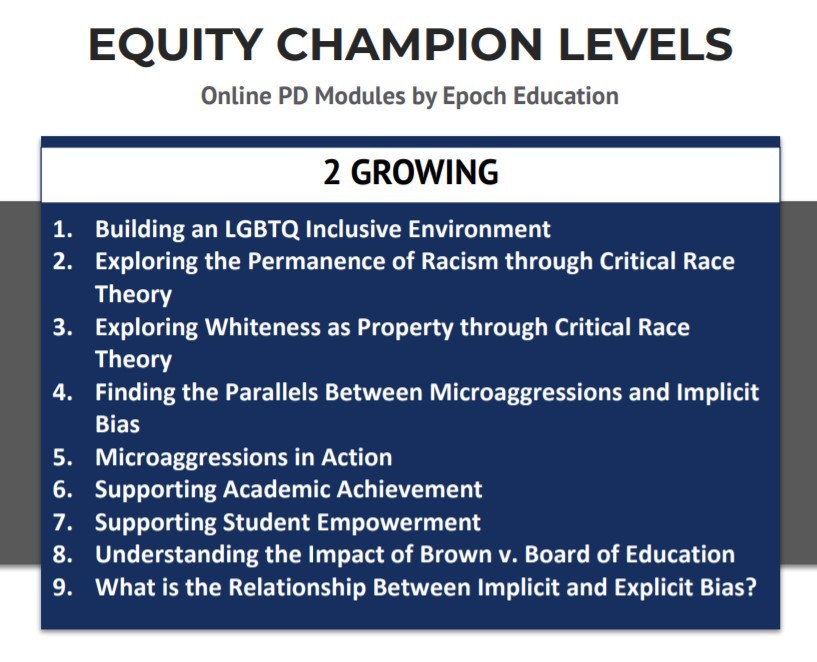California’s Riverside Unified School District (RUSD) promoted race-essentialist material arguing to students, families, and staff that “whiteness” should be pushed to “the margin” and “attacking whiteness is not enough,” according to the Federalist.
“Decentering Whiteness,” an essay by Jeff Hitchcock and Charley Flint, asserts that consideration of race is paramount in any interaction, saying, “Assume whiteness, and race, always structures our experience, and thus needs to be consciously considered as part of any social process.”
The 19-page missive was removed from the school district’s website after a media inquiry.
But race-essentialism is not the only message from Hitchcock and Flint — and RUSD — as the piece also vilifies white persons generally, writing, “White culture has, on balance, been based on principles of conquest and exploitation,” though its central argument is that “simply attacking whiteness is not enough” to achieve the “decentering.”
Rather, “Assaults on whiteness, depending on their nature, may have the effect of confirming and solidifying the central position of whiteness in American society,” because “like a prizefighter,” white persons might “expand[] their reputations and retinue” by “defeating all contenders.”
Indeed, according to Hitchcock and Flint, “Thought must be given to how whiteness itself can be made more marginal.”
This comes as RUSD was caught lying, asserting that they do not teach critical race theory.
According to the minutes taken at a July 15, 2021, school board meeting, district superintendent Renee Hill claimed critical race theory was not being taught in the school district. Further, the Local Control and Accountability Plan shows more than $900,000 put towards culturally responsive teaching, equity, and other related training.
Given the emergence of critical race theory as a major political issue, institutions that wish to implement it may secretly refer to it by other means or camouflage it behind phrases like “culturally responsive teaching” — which uses the same CRT acronym — “culturally competent,” “anti-racist,” and “equity.”
At least some of the teacher pieces of training were conducted by Epoch Education, a partnership presented to the school district by Assistant Superintendent Jacqueline Perez in 2020 that explicitly references critical race theory.
On a slide called “Equity Champion Levels,” one goal is to be “exploring the permanence of racism through critical race theory.” One common trope from critical race theorists is that the “work” is never finished, therefore creating a perpetual need for “action.” Making sure that racism is seen as permanent helps achieve that goal by claiming all things are racist until they control them in their totality.
The slide also signposts “exploring whiteness as property through critical race theory” and “understanding the impact of Brown v. Board of Education,” a seminal U.S. Supreme Court case that desegrated schools, but which critical race theorists argue perpetuates “whiteness.”
But this ideology is not just for teacher consumption, as the slideshow turns to a discussion of the district’s new “Ethnic Studies” course.
Indeed, RUSD appears to be on a mission of “Transforming Our Public Schools,” per the name of another resource that is a “guide to culturally responsive-sustaining education.”
In this guide, among many other things, RUSD seeks to inject race into all aspects of education, including math class in which the class will “learn[] about charts and tables by counting the gender and racial representation of characters in a popular TV show.” For science, the class will “learn[] about planetary orbit in relation to its impact on the timing and celebration of Eid during the month of Ramadan.”
The guide also encourages people to “learn more” about the ideology “in practice” by citing the Zinn Education Project, based on the communist activist and pseudo-historian Howard Zinn’s A People’s History of the United States, which has been widely debunked for accuracy.
Finally, the guide’s glossary lists common critical race theory buzzwords like “decolonize,” “privilege,” and “social justice.”
Breccan F. Thies is a reporter for Breitbart News. You can follow him on Twitter @BreccanFThies.


COMMENTS
Please let us know if you're having issues with commenting.